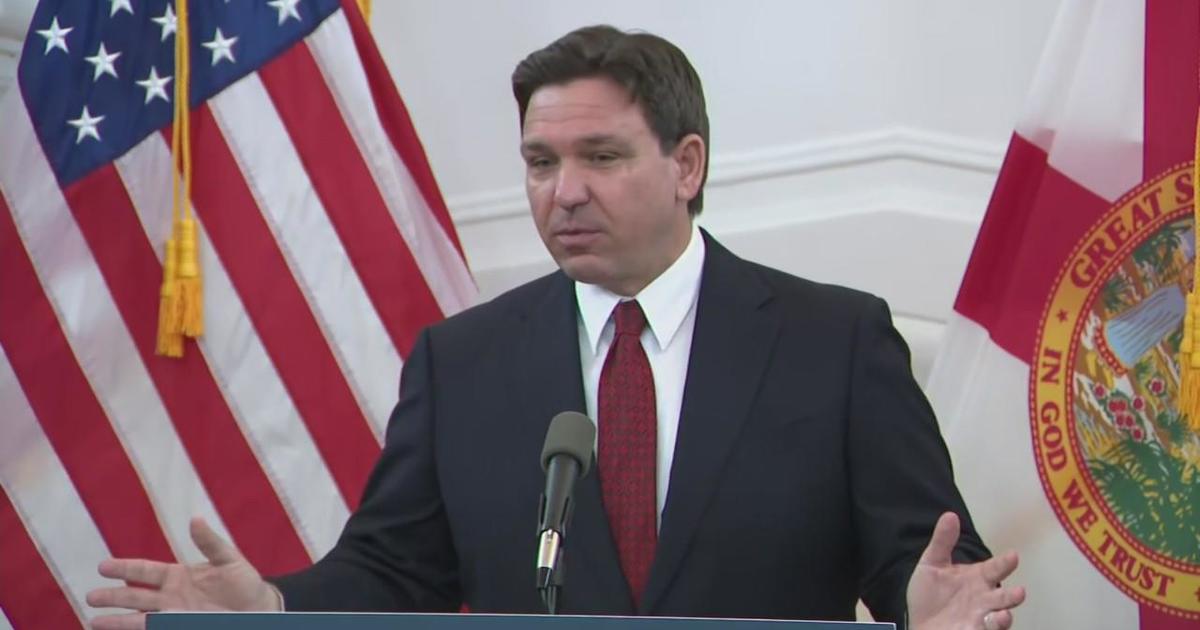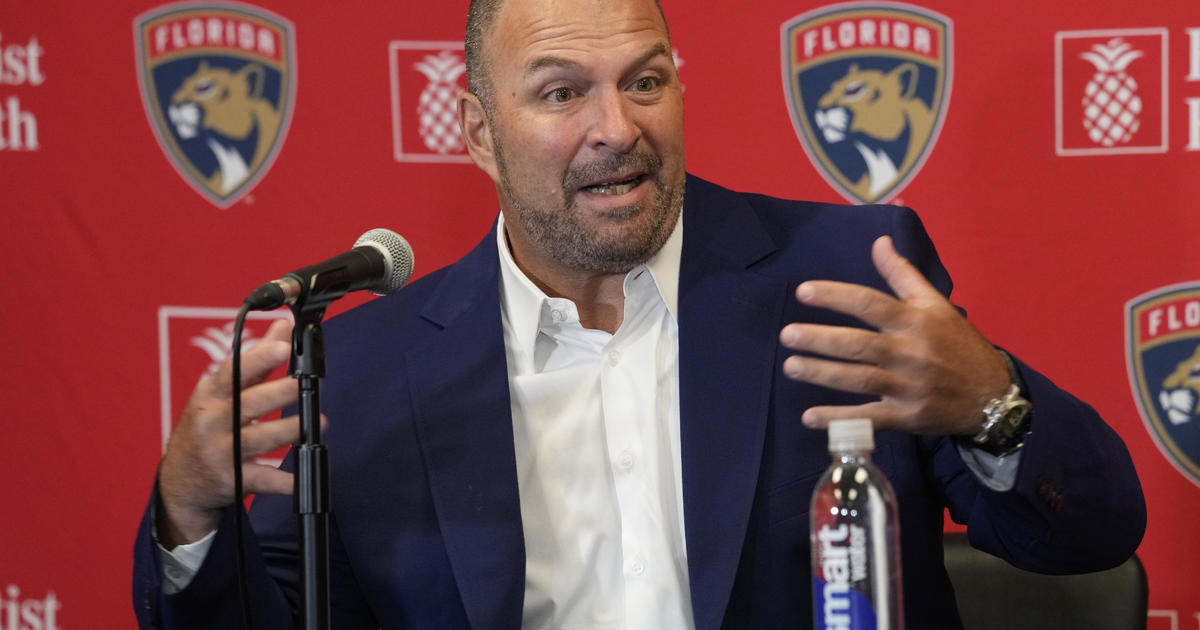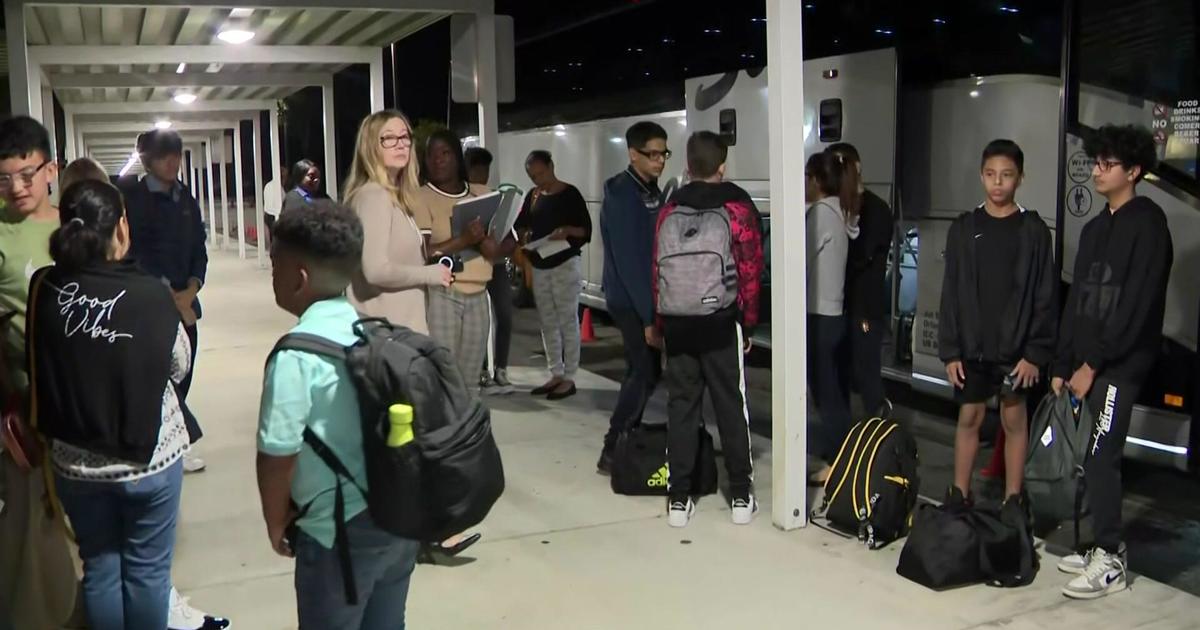Destination Resort Sponsors Defend Casino Bill
TALLAHASSEE (CBS4)- Lawmakers sponsoring the resort casino bill have seen a growing chorus of opposition to bill, and on Thursday they defended it to a roomful of reporters, saying it would better regulate gambling and provide jobs.
"Our goal is not about the expansion of gaming," said Sen. Ellyn Bogdanoff, R-Ft. Lauderdale, the Senate sponsor. "As a matter of fact, we hope it will reduce gaming in the state."
But the bill sponsors also acknowledged the 142-page bill would likely be changed in the coming weeks to reflect concerns from the pari-mutuel industry and better crack down on the proliferation of Internet cafes.
The identical bills allow for up to three massive luxury casinos in Broward and Miami-Dade counties and also establish a new state agency to regulate gambling that is overseen by a seven-member commission.
This high-interest bill has only been on the table for a week, but has already generated a press conference from faith-based groups opposed to it, a television advertising campaign criticizing it by an Orlando-based group called No Casinos, and the opposition of the powerful Florida Chamber of Commerce and Walt Disney Co.
Two casino operators, Genting Malaysia and Las Vegas Sands, are lobbying heavily for the bill, though other casino operators have also expressed an interest in expanding in Florida.
Rep. Erik Fresen, R-Miami, the House sponsor of the bill, said the proposal is likely to change in the coming weeks. In particular, he said the sponsors are open to hearing the concerns from pari-mutuels, who operate the eight "racinos" in Broward and Miami-Dade counties that offer slots and other casino-style card games.
But the bill gives destination resorts a competitive advantage by awarding them a better tax rate than pari-mutuels. Pari-mutuels pay a 35 percent tax rate, while these casino resorts would pay 10 percent.
Bogdanoff said any appearance that a casino operator is favored is unintentional. "If it does favor or disfavor (a company), we will change the language because that is clearly not the intent," Bogdanoff said.
Tighter regulation or the elimination of Internet cafes is also on the table for discussion, Fresen said.
"We are confident within the first 24 hours of this bill being in committee or being on its way to a committee the issue of Internet cafes, what to do with them, what not to do with them…is going to take place," Fresen said. "This bill will evolve and is going to evolve in a way that I know is going to net a significant reduction in gambling."
Bogdanoff said the bill will be heard in the Senate Regulated Industries Committee next week but won't be voted on.
Both lawmakers said they wanted to set the record straight after weeks of media reports fueled by the opponents to the legislation. Bogdanoff said the message had been "skewed" by lobbyists who have a stake in the outcome.
"I want to make it clear that their involvement is limited to whatever testimony they might give in committee," Bogdanoff said. "The companies interested in offering destination resorts have been engaged to let them know what direction we're going," she said.
A self-described gambling opponent, Bogdanoff said it would be too difficult politically to bring just tighter regulations to gambling now that it is already here: Casinos run by the Seminole tribe or the pari-mutuel race tracks that offer slots and card games, or even the state-backed Lottery.
"Gaming is going to continue to expand unless we wake up the Legislature, recognize where we are as a gaming state and work to harness it, control it, regulate it," Bogdanoff said. She pointed to the sudden decision in Gadsden County to have a referendum on slots as a perfect example of why reform is needed.
But opponents to the bill say they dislike any proposal that would result in more money being spent on gambling, and say they don't believe claims that the bill would shut down existing gambling facilities.
Some of the hour-long discussion also focused on criticisms of the state's deal with the Seminole tribe, which guarantees $1 billion in payments over five years in exchange for the exclusive right to offer certain card games.
Fresen said the agreement with the state "isn't worth the paper it is printed on," and criticized the monopoly it gives the tribe to offer certain games over competing pari-mutuels.
Barry Richard, an attorney for the Seminole tribe, said the state should try to preserve payments from the tribe by letting the Seminoles offer the same games played at Las Vegas-style casinos. "If the state really has an interest in expanding casino gaming in Florida wouldn't the most sensible thing to be to talk to the tribe?" he said.
But Fresen said he can't ignore the promise of jobs and economic boost these destination resorts could provide.
"My community is begging me," he said. "Can we do something to inject some capital into our economy? I have $6 billion knocking on my door from an industry who wants to come in with all private capital."
(©2011 CBS Local Media, a division of CBS Radio Inc. All rights reserved. This material may not be published, broadcast, rewritten, or redistributed. The News Service of Florida contributed material for this report)



